Interview: Artistic Director Yamin Choudury Talks Access and Representation at Hackney Empire
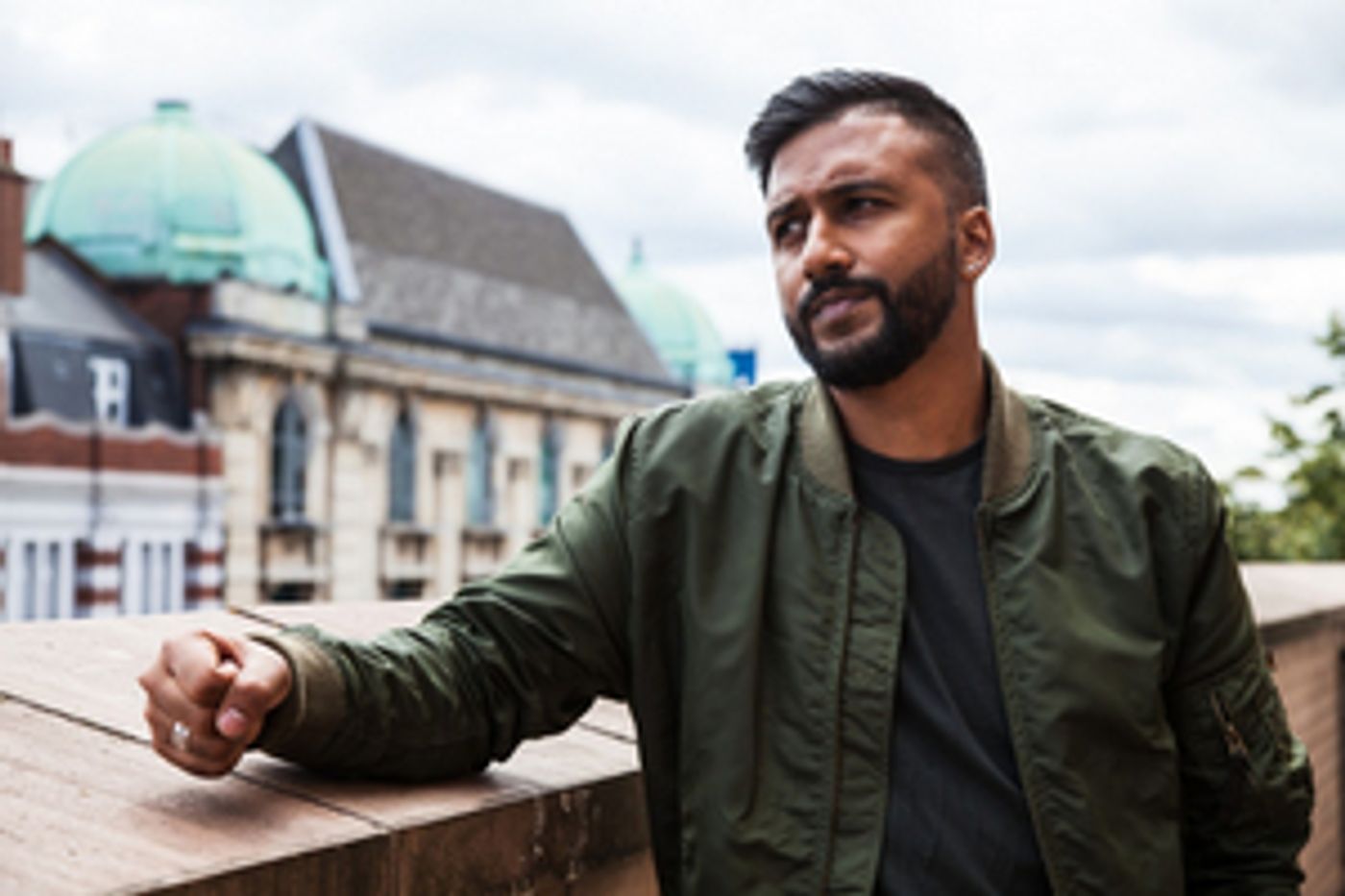
Yamin Choudury recently celebrated two years in the role of Artistic Director at Hackney Empire. In that short time, the theatre has seen an average of 83% new bookers for many productions, and youth engagement has also increased. Choudury spoke with BroadwayWorld about access, representation and diversity in the arts, as well as his vision for the East London landmark.
Tell us about growing up in London and how you were first introduced to theatre
I grew up in Haringey and fell into a lot of the traps that my peers were falling into. I made a lot of mistakes, I was in and out of education and quite directionless. Between 15 and 18, I went completely off the rails, and it was then that I was introduced to an organisation called Haringey Shed. I was instructed to volunteer there to bring some shape to my life and give me something that would provide much-needed character references.
Haringey Shed was an inclusive theatre company that used drama, dance and music to work with young people from across Tottenham and give them an outlook. We worked with young people in care, young offenders, young people with substance abuse issues, as well as young people who just loved the arts. I volunteered there for two weeks in the early 2000s and those two weeks completely changed my life. It was this real crystallising moment that you don't quite realise is happening at the time. It had nothing to do with theatre whatsoever. For me, it was all about how art can transform people in different ways depending on who the user is. It was the first time in my life where I felt my opinion was valuable.
When did you know theatre was an area you wanted to pursue as a career?
I met Susie McKenna, who was the soon to be Creative Director of Hackney Empire. Having grown up in Tottenham, I'd never been to a theatre before or had any real exposure to theatre. I'd always liked drama at school - it was one of the few subjects I didn't get kicked out of - but it wasn't anything that I seriously thought might be a progression route for me. For a lot of people where I come from, theatre isn't something you necessarily invest in. You passively engage in it, but you don't necessarily think about the outcomes.
Susie invited me to come to Hackney Empire to have a look at a theatre and see what it's like. I basically lived there for a couple of months - I couldn't get enough of it. I sat behind the tech area and just absorbed everything. They'd throw me the odd job of helping with the bars or front of house, and I watched everything - from comedy to music to opera - and I just knew that this was something I had to be involved in. It was so different to where I came from. I saw these people who just enjoyed every moment. Everything they did was exciting and kind of mysterious. That time spent at Hackney Empire and those couple of weeks at Haringey Shed has informed everything I've done since.
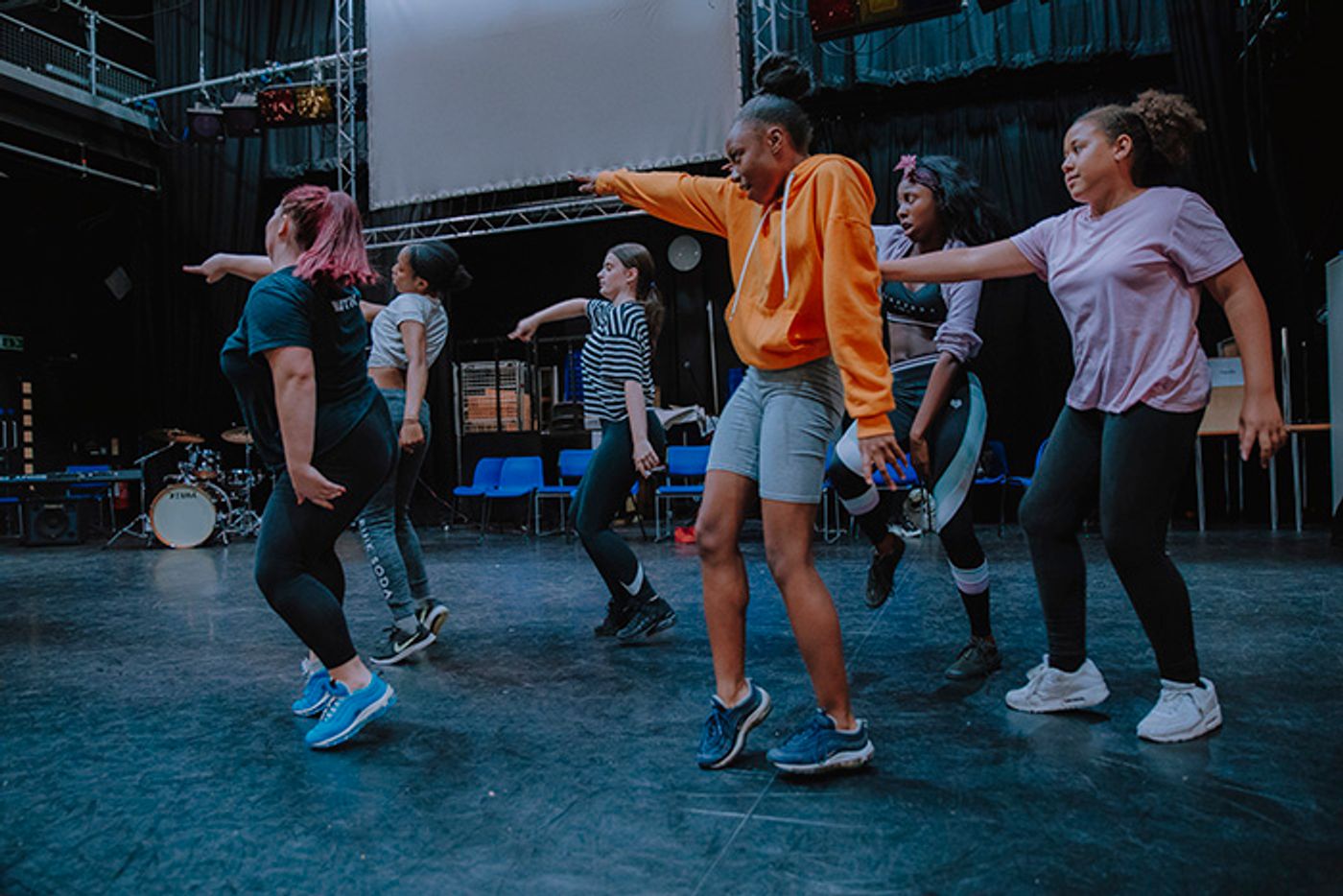
What have you implemented so far at Hackney Empire, and what is your main focus?
[Executive Director] Jo Hemmant and I took over the senior leadership of the theatre just over two years ago, and one of the first things we did was remove 'diversity' from the lexicon of how we describe Hackney Empire.
I think there's a good justification for Hackney Empire being able to make the claim that it is one of the most diverse theatres in the country in terms of creatives, artists and audiences. That being said, what we don't see and what the arts and culture sector doesn't see is how audiences diversify themselves. For example, what is the crossover between a stand-up comedy audience and an opera audience? Or a grime musical audience and a literary book launch audience? Very little, generally, so until we start seeing audiences traversing art forms at Hackney Empire, we won't use the word diverse to describe ourselves in that way.
So, what we've done to try to create these kinds of pathways is look at how we diversify the programme to create not only the strongest possible offer, but to look at what access points and through-lines and anchors we can make across the year. We make our ticket prices as affordable as possible so people can access art in all its forms. Again, it leads back to the month I spent at Hackney Empire, which afforded me the opportunity to see a bit of everything, including what I discovered I don't like. I could just browse, and that browsing really allowed me to refine what I thought this theatre could offer me. So we're trying to develop that for audiences generally.
Access is the focus. Access points for artists, creatives, producers and our audiences. The core ethos that fuels us is not just creating art for art's sake. We're always examining who it's for, who it serves, and really trying to dig down and centralise people, communities and audiences at all times.
How hard is it to entice teenagers, particularly in East London, to the theatre? Do you find young people in the community are reluctant to get involved or is there a hunger there?
It's easy to answer these questions with broad brushstrokes, but when you start to dig deeper, they become a lot more complex. The simple answer is "No" - most young people, particularly the young people we feel like we have a responsibility and an obligation to work with, like those with less access, theatre just isn't a thing for them. They engage in arts and culture, but very much within their own mediums and comfort zones. Music is absolutely a universal language in that respect and is something we utilise a lot as a tool in order to develop access points for further engagement.
Our version of theatre really is just using arts and culture as tools to develop people's key skills. All of the work we do with young people isn't necessarily designed to push them into drama academies or schools later on in life. It's to help them re-engage with society, education, employment and training. We're teaching communication and teamwork, but also open-mindedness. Examining how your perspectives on your life and your capabilities can be narrowed by your environment and upbringing. I don't mean that in a negative way, but just in terms of, if you don't have access to education, information and ideas, how do you know what's possible for your future?
I think theatre, at its best, is an incredible, democratising kind of device to pass on information, but I'd be lying if I said the vast majority of young people that we work with were just really, hugely excited by theatre. There are still massive barriers and lines in the sand in terms of what access looks like for different art forms.
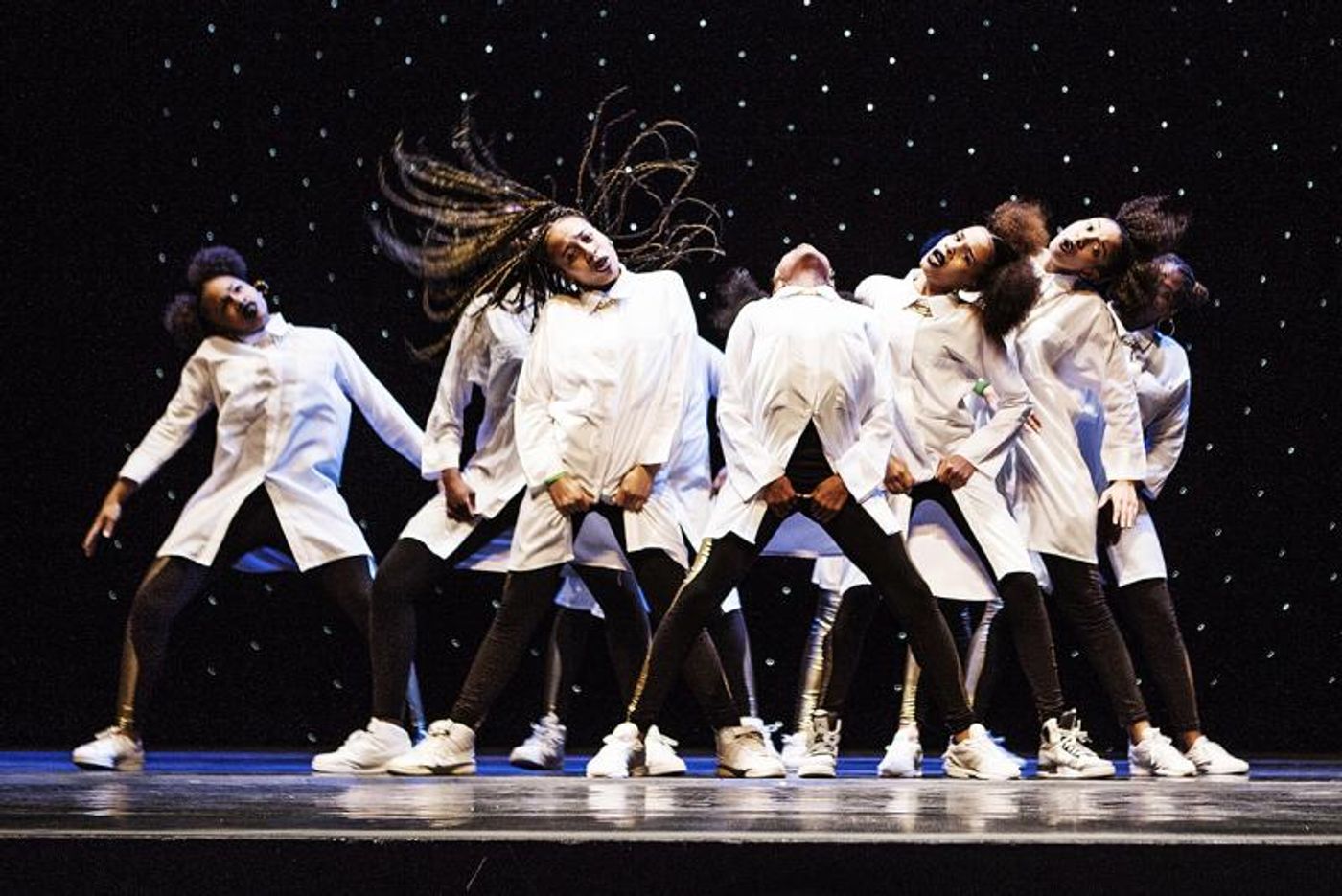
Working with young people is something that's close to your heart. Tell us about the youth programmes you have on offer, like Creative Futures
Hackney Empire's work with young people has always existed in one form or another. In many ways I was a beneficiary of that. Back in 2012, Susie McKenna, creative director at the time, wanted to completely redevelop work with young people and local communities. With the Olympics, there was an injection of money, and for the first time the theatre had the ability to invest a little bit more into how these programmes were delivered.
At that time, the work with young people was centralised on one programme called the Artist Development Programme, which still runs today. It's an incredibly powerful, intense programme where about 40 -50 young people come together and create a brand new piece of musical theatre in ten days, which they write, direct, and compose themselves.
While that was fantastic and remains a core part of the programme we offer today, having grown up in a similar area and environment to Hackney, I just felt like Hackney Empire was missing a trick. What we really needed was simply participation in its wider sense. Again, how does art and culture as a sector enable young people to re-engage or even discover their offer? That's when we developed Creative Futures. It operates throughout the year and is entirely free for its participants and any commissioning organisation.
We do a lot of outreach work across schools, colleges, charities, prisons and pupil referral units throughout London. Every programme we deliver for the outreach aspect is bespoke to the group we're working with. We identify what this specific group needs, develop a scheme of work, and curate a group of people best suited to deliver it.
I don't think anybody else in the theatrical sector is doing it in this way, or with the general demographic that Hackney Empire works with. The impact has been massive. We now work with approximately 4,000 young people a year and the programme is constantly evolving. We evaluate its strengths and weaknesses to ensure we're always as responsive and aligned as we can be.
We have weekly programmes running after school, half-term programmes throughout the year. We also have Limitless, which is for young people with special education needs or disabilities. We also have four or five performances on our main stage each year specifically for young people. The top ticket price is around £6, and we try to curate arts and culture by and for young people and give them something really exciting to attach themselves to. It all goes back to diversifying the programme to lead to a more diverse audience.
Who do you see Hackney Empire as being primarily for? Is there pressure to be community-focused as well as looking at the wider commercial picture?
You've got your commercial arm that brings in the money, that puts on high-quality art for the masses, and then you've got this community aspect that satellites around it. Nobody denies the importance of that, but very few people hold them up as equal components.
One of the first things we did was completely rewrite the mission statement for the organisation, and the core part of that was trying to understand why this void exists between the supposedly commercial sector and the community sector. We want to appeal to our immediate community, but of course also appeal to a wider community of theatregoers and ticket-buyers! We really don't see them as being mutually exclusive, so everything we do is designed to create a sense that Hackney Empire is a space for all.
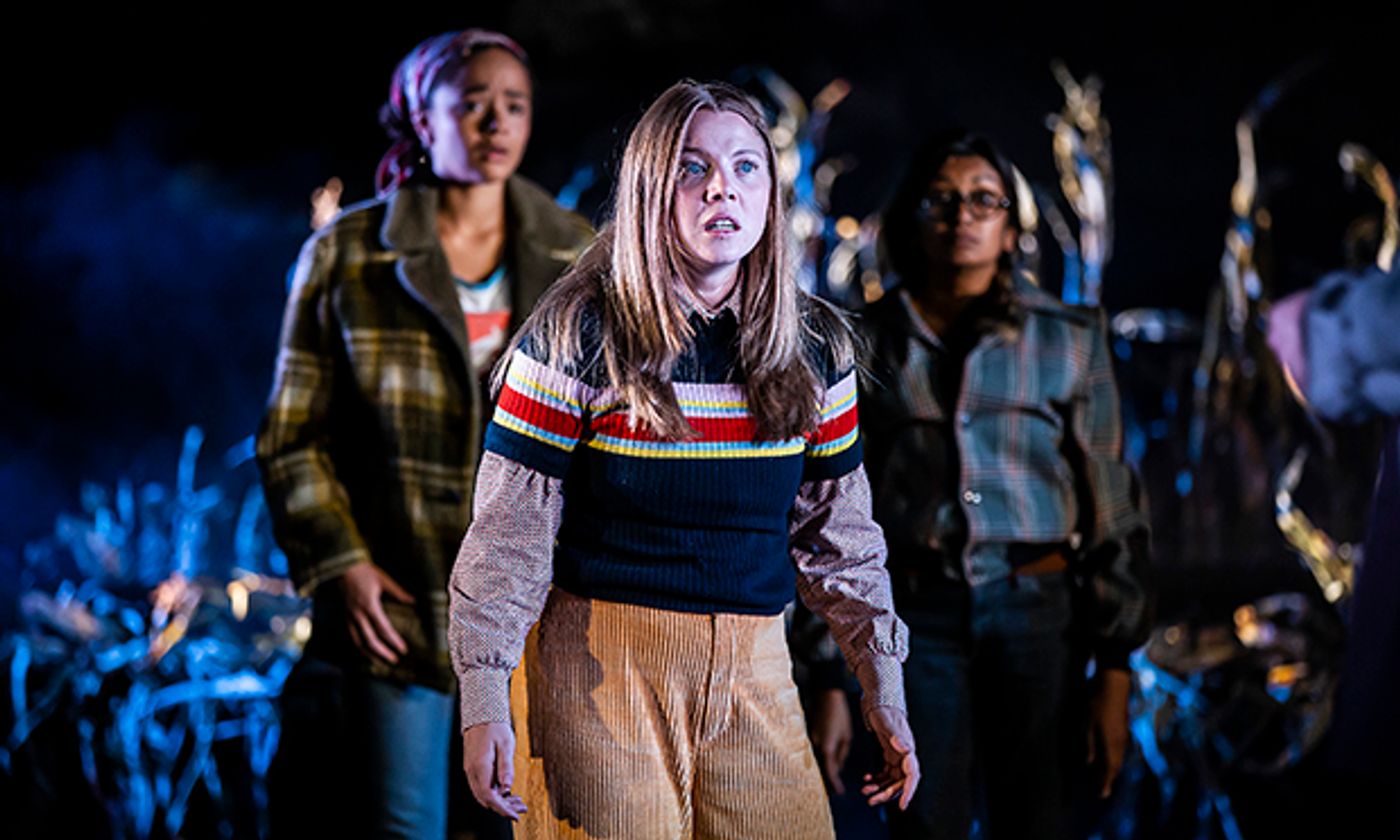
When you started as Artistic Director, you obviously came in with a to-do list, and as discussed you've already implemented a great deal. What's still on that list for you?
The list gets rewritten every single day. Ultimately, I feel strongly that the organisation I benefited from has to continue to benefit generations for years to come. There's always this idea that funding is a battle, that the next year might be fantastic but the year after is an unknown quantity, so bringing sustainability and longevity to how we plan, programme and produce is the main thing that I want to focus on.
Artistically, I'm really most excited about representation in all of its forms. I learned very quickly when I was growing up in the industry that representation really isn't pushed enough, not just in terms of the faces on stage but in terms of who are the storytellers, who are the enablers and who is enabled?
What are your thoughts on diversity in the arts, both on stage and off? How much work still needs to be done here?
With just me being who I am and because of where I come from, I'm confronted by the lack of representation across the sector on a daily basis. It's one of the reasons why we've taken 'diversity' out of how we describe Hackney Empire. It's become such a loaded term, and it's only a matter of time before 'representation' becomes an equally loaded term. I'm not entirely sure what diversity means anymore, because it's so often discussed through the lens of the people discussing it.
I myself, as a BAME man, am intrinsically going to examine diversity in our sector through the viewpoint of a BAME man - but what does that mean for female creatives and artists and audiences? What does it mean for artists who are disabled? I can't possibly really understand the lack of opportunities available for those communities because I don't exist within them. These diversity conversations are unfairly loaded towards the most zeitgeist group of the time - we're not really examining the issue of equity across the board. That is massively problematic. It's not an issue one person can solve. It's a discussion the entire sector has to have together in order for answers to be found.
I don't think theatre is diverse or representative enough, nor do I think enough work is being done to encourage representation in all its forms - not only in terms of the art we create and present, but the audiences that have access to it. I say that, too, as somebody who grew up on an estate in a particular social economy. It's even rarer to see people from the communities I grew up with engage in something that's so incredibly powerful - to create discussion, and transform how people feel about themselves and their societies. If you look at it just from the stats, of course things are getting better. But if you look at the lack of people coming through as gatekeepers, I don't think enough has been done at all.
When I was first appointed, a very mainstream broadsheet contacted me because I had become one of only seven BAME artistic directors of theatres in the country. They said how great it was that another person had been added to this group, but I feel it's really sad to celebrate these singular appointments.
I know that in the past couple of years, there's been a swathe of appointments that are going to be transformative in the industry. People like Tarek Iskander at Battersea Arts Centre and Lynette Linton at the Bush. Incredible minds, and people who are so brave and clever about how they produce and programme. I'm really excited to see what they achieve. But it's not enough. It's also damaging in the sense that I don't necessarily have a huge amount in common with the other six people that I was being so readily grouped with. Just because we're not white, we happen to be identified as being in the same group. When you do that, what does it mean for the artistic actions of the individual?
I genuinely believe that Hackney Empire could become the Speaker's Corner of London theatre. This democratic platform for incredible ideas and incredible storytellers, and the opportunity for audience members to interact with the sector to discover our incredible, infinite offer that the theatrical landscape has. If Hackney Empire, an organisation that has a long history of incredibly limited funding and resources, can do it, then we can almost point a finger back at the industry and say 'Why can't you?'.
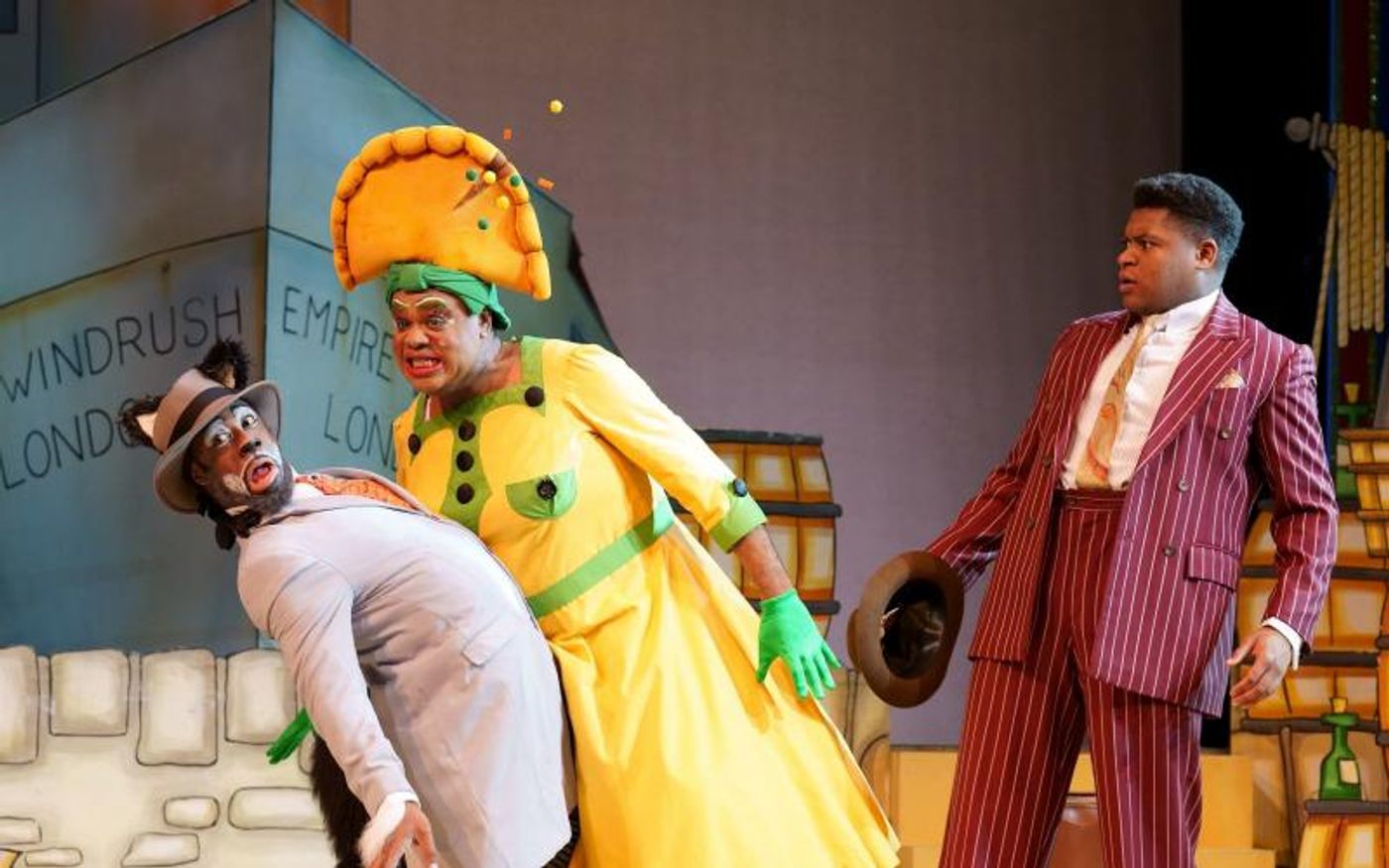
at Hackney Empire
You mentioned having never been an Artistic Director prior to this appointment. Do you find yourself looking over the garden fence at what other ADs are doing and drawing inspiration from them?
I absolutely voyeuristically spy on everybody else. I think every AD and ED probably does that, and - in the best way possible - enviously looks at other people's achievements. I take a tremendous amount of pleasure and joy in watching other senior leaders hit targets that I myself have, because I genuinely feel like I'm just trying to create a small change in a sector that's swiftly becoming obsolete to far too many. Our sector talks to so few people that I'm actually offended by it.
I look and learn from the best, but I'm also aware that the mentality I have with my background and what I want to achieve does look different to how other people think about the role of an AD within organisations. I've made some incredible friends across the sector who have been invaluable to me - to talk to and learn from and even provide a shoulder to cry on when things go wrong.
People tend to look at Artistic Directors as someone who has all the answers, so because of my position, my word is infallible, and if something doesn't make money or engage audiences it's because I'm risky and brave. That's actually unhealthy and absurd. We should be constantly reviewing what we've done wrong and what we can improve on. I'm always the first to admit I do not have all the answers. The buck stops with me and Jo, and we'll take responsibility if anything goes badly, but any successes we've had over the past few years are down to the entire team.
If you look across the sector during the current crisis, no one knows what to do. But I'm like that on a normal Tuesday! We use all of our learning from both the successes we've had and the disappointments to inform our next set of decisions. That's how we're going to improve and ensure Hackney Empire is here for years to come, and that the next caretakers of this organisation I care so much about are able to reap the benefits of the work that me and Jo are doing now.
Hackney Empire wasn't in the best shape when you came on board. Was that perhaps a good thing in terms of allowing you to put your stamp on it and take the theatre in a new direction?
I wouldn't have done it if it hadn't been in bad shape. I had no dreams of becoming the greatest AD that's ever been. That's not what Jo or I are doing it for. The only reason I'm doing this is because I've always cared about this organisation, and I'm talking to you today because of Hackney Empire and Haringey Shed. I owe everything to these two companies, and it's a debt I'll never be able to fully repay.
If Hackney Empire was booming, not only would I not be in the position I'm in now, but I wouldn't have been able to affect the wider landscape in the tiny way I have. We had to really examine and deconstruct every decision, and that meant we might have made the wrong decision at times, but we made it for the right reasons. I'm incredibly proud of our achievements. It's been life-changing to see Hackney Empire begin to swell again as an organisation, having come out of another period of difficulty in its history. Six weeks ago, we were in the best place we've been in years in terms of finances and our ambitions for the immediate and long-term future.
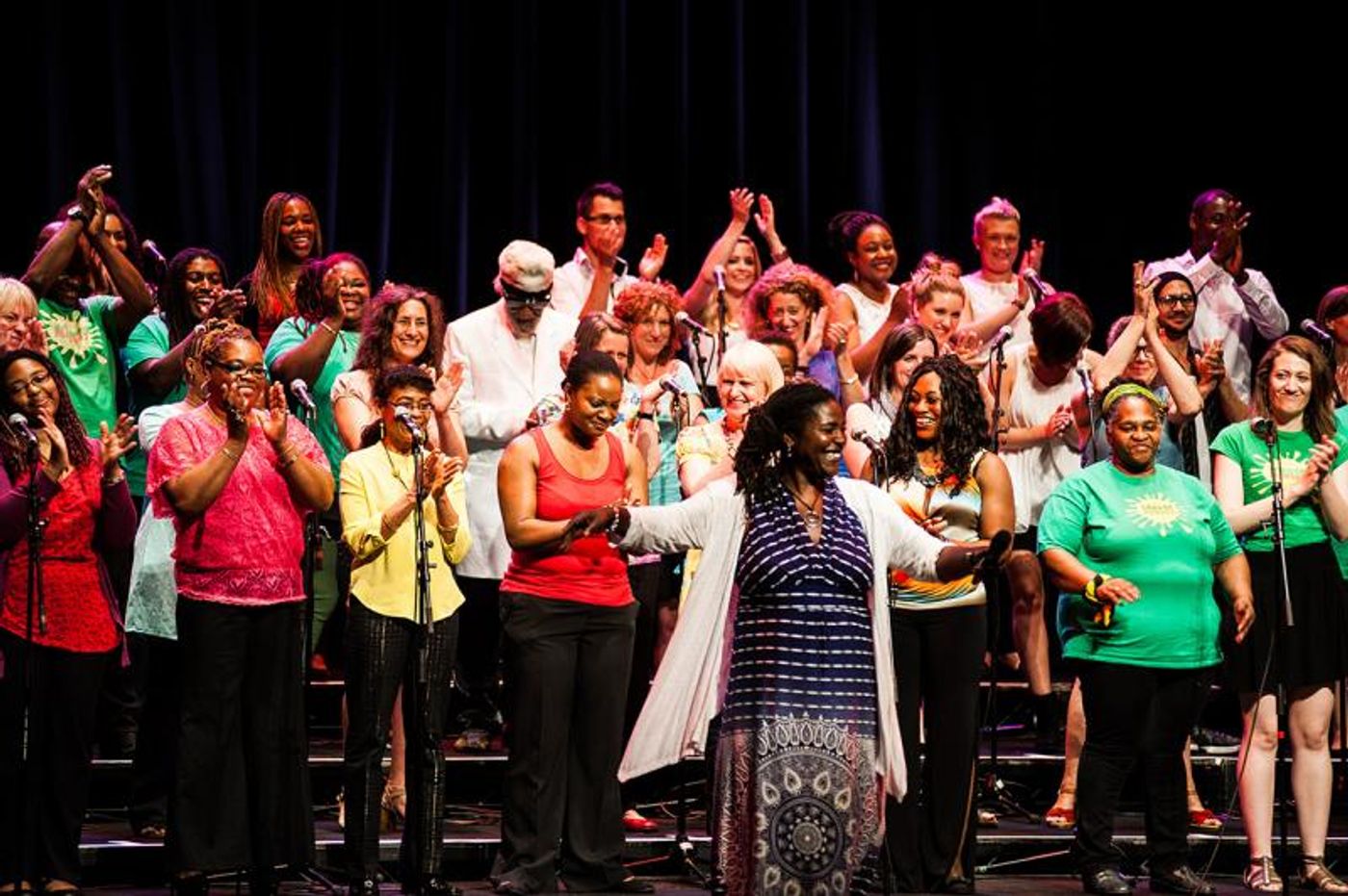
Do you think there's going to be a lasting impact on the arts from Coronavirus, and what do you think about the Government's response?
I absolutely think the Government let us down in not giving us an order to close. That was irresponsible. The Government is strongly focused on the resilience of the economy, as opposed to people's wellbeing. These are difficult decisions to make, and it's not me being bitter about a Tory government, but it meant they were putting every single senior leader in a massively difficult position. Hackney Empire itself was in turmoil for those two weeks before the official lockdown, because nobody really knew how to play this game. There was no research to fall back on, no mentor to call and ask.
Also, as an Artistic Director, I don't want to make the decision as to when I think it's safe to reopen. I'm hoping the Government is going to give us really clear, scientifically based instructions. How does any organisation that's in crisis make the right decision between your business model collapsing against the health and safety of your patrons? Given the opportunity, I think a lot of us would try to start programming as soon as possible. And of course that's right for the sector - but is it right for the communal health of our society? I don't want to be put in that position.
If theatres are allowed to open in some form by September, who knows how audiences will interact with our sector going forward. Are people going to want to be in a confined space sitting with people they don't know? Does that change between a 100-seat venue and a 1,000-plus-seat venue like Hackney Empire?
I'm concerned for the sector as a whole. I think there's going to be casualties. What does this mean for diversity? What does it mean for representation? Is this going to be a situation whereby it's survival of the fittest? And those with the most money are able to continue operating? If that's the case, then the bottom is going to fall out across representation in the sector. It's not going to be the priority it was six months ago.
It will be interesting to see whether there's any kind of correlation between organisations that start to fade and the established hierarchy of theatre across the country. It's a scary time for us all, but I'm hopeful that there are intuitive, clever leaders who are going to figure out different ways to work together to sustain the industry. If we don't collaborate way more than we currently are, it's going to be worse. I don't think the sector is working together enough at all.
Thinking about happier times ahead, how would you sell a visit to Hackney Empire to someone who hasn't been before? What is your theatre about?
Going to Hackney Empire, for me, is like watching theatre in your living room. There's this idea of comfort and safety and lack of judgement, bureaucracy and bourgeoisie. There are very few places in the country I enjoy watching something in more than Hackney Empire. It's a simple, beautiful home that's welcoming and gentle. I don't ever feel like I have to dress up to see a show. On top of that, the transport links are much improved, so for all those people complaining that you can't get to Hackney, that's nonsense. The train is nice and it's got air conditioning!
I'm really proud of what we offer, and if we are able to relaunch in September/October, which is vaguely speaking what we're planning towards, it's going to be an incredibly eclectic, wonderful programme. A lot of shows are going to cascade into each other. I hope that people have the finances to be able to entertain themselves in these ways.
It could be an incredible time in theatre and live events, and maybe we'll start really thinking about why we're doing what we're doing and who we're doing it for - and that can only lead to an artistic boom in the sector. It's just hard to think about that now when people's lives have been so affected. What we know is that our sector provides a great escape for everybody, to forget about problems or think about them in different ways. Theatre's going to be needed more than ever.
You can find out more about Hackney Empire here
Photo credit: Katherine Leesdale
Videos

